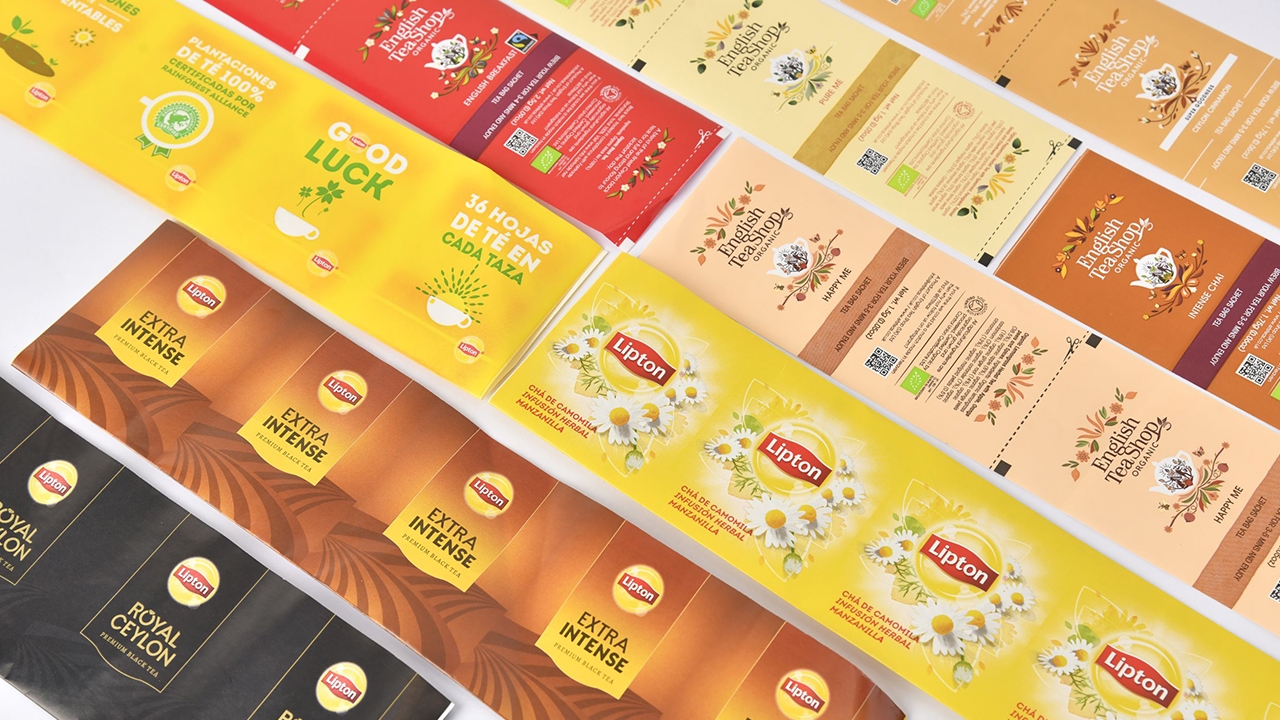Sri Lanka’s label printers eye international markets
Despite global economic setbacks, the label printing industry in Sri Lanka has shown remarkable resilience and adaptability.

Tea labels and tags are a prime market in Sri Lanka
Sri Lanka, an island country in South Asia known for its natural beauty and tea, has been experiencing a severe financial crisis that has impacted every sector of business, including its label printing industry. The Sri Lankan label industry has faced difficulties purchasing raw materials such as ink and paper, as well as capital equipment — in short, everything needed to run a label printing business.
Despite global economic setbacks, the country’s label printing industry has shown resilience and adaptability. Industry players have navigated the challenges and are now positioned for growth, according to discussions at Sri Lanka Print 2023 hosted by the Sri Lanka Association of Printers (SLAP) held jointly with Lankapak 2023.
SLAP president, Anil Kariyawasam, says: ‘We are delighted to witness the incredible talent and dedication of the Sri Lanka print community. The quality of printing is of international standards and is a testament to the industry’s progress. There is clear evidence of how far we have developed the industry, which today employs over 300,000 people in 4,000 printing facilities across the country.’
Strategic diversification
The Sri Lankan label printing industry is working toward becoming the ‘printing hub’ of South Asia. Located below India in the Indian Ocean, Sri Lanka’s many harbors and proficient air cargo services make it an ideal ground for global exports. Its prime geographical position allows easy access to import raw materials as well as export finished goods in short time frames.
All of that equips the Sri Lankan label industry to participate on the global stage.
Sathis Abeywickrama, CEO of Flexiprint and Print USA, comments: ‘My goal is to support value-added Sri Lankan products such as tea, through quality printed offset packaging. With 27 years of experience in the trade, we hold a substantial market share overseas as we supply to Asia Pacific, EU and the Americas. Our customer base also includes prestigious brands from Australia, New Zealand, Papua New Guinea, India, Saudi Arabia, UAE, the UK, the USA and Africa.’

Flexiprint manufactures packaging for tea bags, mainly tea tags and tea envelopes. In recent years, the company has successfully ventured into the self-adhesive label market, printing labels for coconuts, cosmetics, pharmaceuticals, alcoholic beverages and more. Flexiprint, along with Print USA, boasts a steady growth rate of over 10 percent per year.
‘Printing had to survive because...like it or not, it is a huge part of our industry,’ says Isuru Abeywickrama, director of Flexiprint. ‘In times of stress, people drink more tea, whether they are in the office or at home. So, we had to keep on working. During the pandemic, our order booking rose by 28 percent. To the credit of our government, we were given permission to carry on with our work, with all due precautions, including those for the employees.’
Where digital meets conventional
In recent years, Sri Lanka’s label printers have embraced technological advancements, integrating modern printing techniques and machinery. This has improved efficiency and positioned them as competitive players in the global market.
During the SLAP event, many exhibitors agreed digital printing showed signs of strong growth, and some expressed a desire for industry training on conventional print.
Sandeep Sharma, director of Acme Rolltech, says: ‘The response from the attendees was very positive, with a mix of narrow, wide web, and CI flexo customers expressing interest in the company’s products. We see Sri Lanka as a growing market in both wide and narrow web segments but believe that there is still a need for technical education about flexo printing technology.’ Acme has several customers in Sri Lanka, and the company has plans to increase its presence in the local market.
However, Flexiprint’s Abeywickrama sees the many advantages of conventional printing and has invested in a Bobst press that will be installed in April. ‘In flexo, you have so many advantages. And the best thing with flexo is you can go water-based and have very quick platemaking time. We have the capacity to print 85 million tea bag labels a day.’
Sustainability initiatives
In addition to the regularly printed exports, the printing industry of Sri Lanka offers an opportunity for eco-friendly products. Many top printers in the industry have adopted sustainability measures to protect the environment, recover raw materials and offer environmentally friendly printing processes at attractive rates while adhering to world-class quality standards.
Abeywickrama adds: ‘I am a firm believer that a sustainable business is a successful one and we intend to leave the smallest environmental footprint behind.’
The label printing industry in Sri Lanka is not just surviving but thriving despite challenges. Strategic investments in technology, a skilled workforce and a proactive approach to global markets have positioned Sri Lanka as a key player in the label printing arena. As the industry continues to grow, its ability to adapt to changing market dynamics and embrace sustainability will be critical for sustained success.
Stay up to date
Subscribe to the free Label News newsletter and receive the latest content every week. We'll never share your email address.


